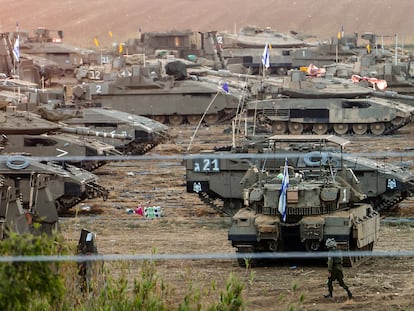
On the brink of the abyss: The balance of forces in the face of Israel-Hamas escalation
Hamas’s urban guerrilla tactics, Hezbollah’s vast arsenal and Iran’s shadow backing challenge Israel’s military superiority in the region

Hamas’s urban guerrilla tactics, Hezbollah’s vast arsenal and Iran’s shadow backing challenge Israel’s military superiority in the region
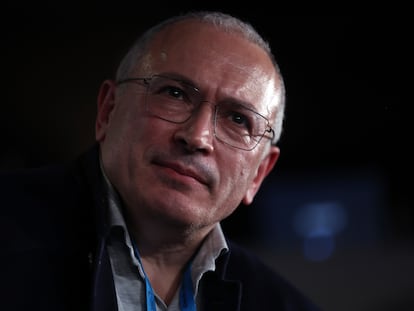
The former oligarch and Putin’s major opponent believes that the only realistic chance is to take advantage of a rift in the regime
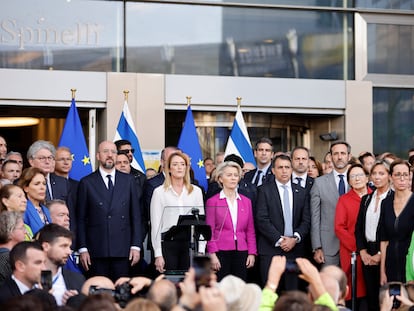
An era of instability, with changes in the attitudes of large and medium powers, seems to have encouraged turbulence, and the Union is not well prepared to face them

The celebration of the author’s centenary reveals the enormous literary and intellectual stature of a man who always knew how to say ‘no’ when it came to the big red lines
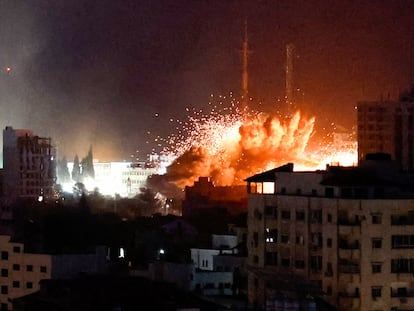
The conflict threatens wider consequences such as the cooling of the Israeli-Saudi dialogue, new tensions between the West and Iran, and accusations of double standards leveled at Israel’s supporters
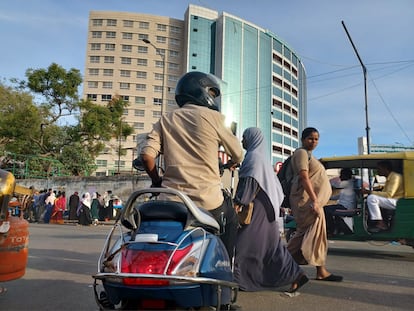
The South Asian giant is striving to capitalize on its geopolitical position and huge domestic market to establish itself as a manufacturing heavyweight. The city of Bangalore exemplifies its potential and its remaining challenges
Today’s geopolitical relations are marked by demands for a change to the world order, historical revisionism and reproaches against the West
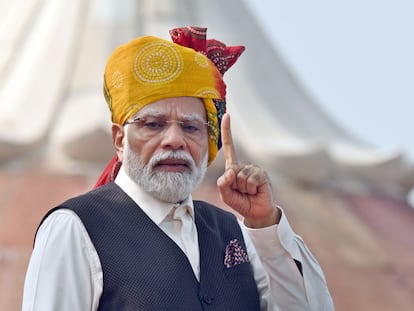
The Indian prime minister touts economic and geopolitical successes, over which looms a dark shadow of democratic decline and sectarian confrontation

New Delhi seeks to become a reference for the Global South as it gets closer to Washington. But tension with China will complicate a consensus this weekend
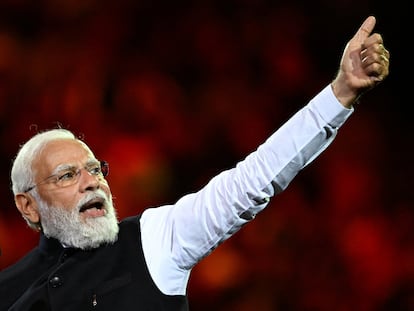
The head of state broke tradition by using the place name promoted by Hindu nationalists in an invite in English
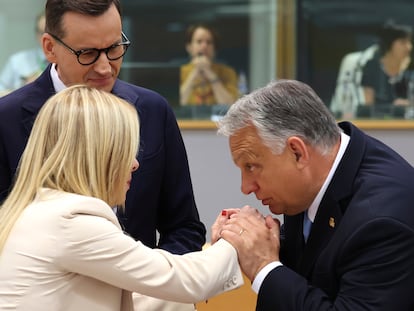
The influence of extremist parties on traditional conservatives is tangible and poses clear risks for the erosion of rights and the European project
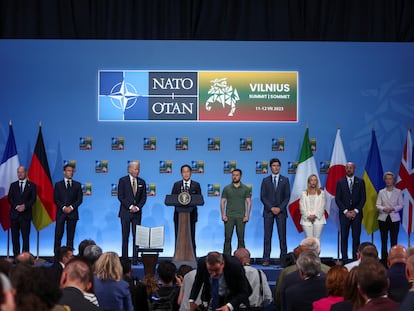
The Alliance has launched a study to assess potential risks from North Africa, the Sahel and Middle East, but the area was left out of regional plans approved at Vilnius summit
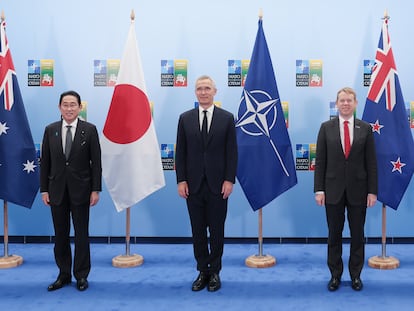
The leaders of Japan, Australia, South Korea and New Zealand took part in the Vilnius summit, but the Allies disagree on how far the organization should be involved in that region
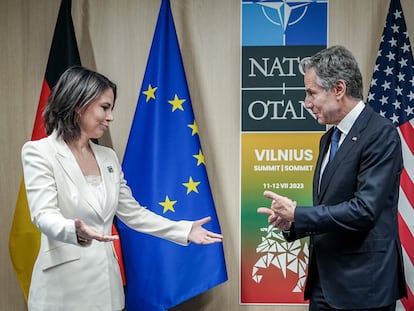
In a communiqué, the Allies say defense spending will be ‘at least’ 2% of GDP and announce further investigation into emerging threats in the southern flank
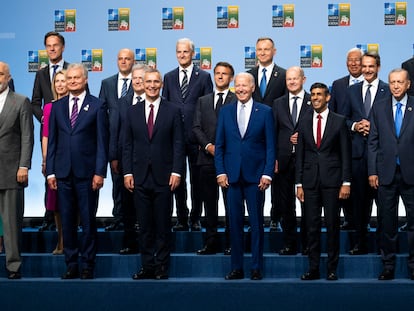
Zelenskiy charges that the allies’ agreement is undefined and warns it could benefit Russia
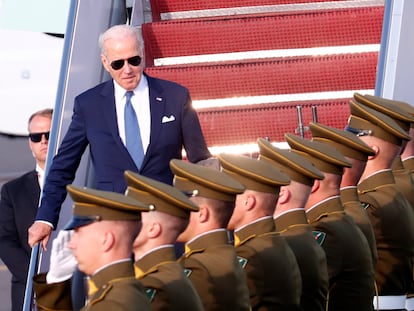
The initiative, which is supported by France, Germany and the United Kingdom, involves a commitment to continue to supply Kyiv with weapons, but does not set down a concrete timetable for the country’s accession into the Alliance, which is still a source of division
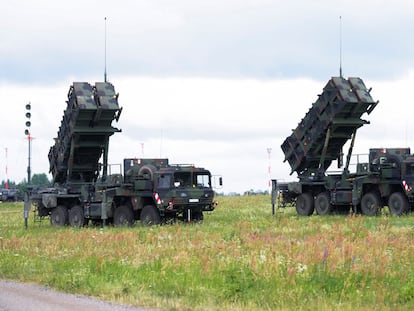
Lithuania has pulled out all the stops to offer security to around 40 state and government leaders who are meeting in extraordinary geopolitical circumstances

The Allies will meet in Lithuania in a bid to send the Kremlin a resounding messages of unity and strength
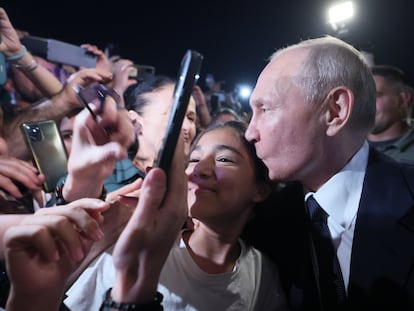
The failed rebellion of Wagner’s mercenaries has shown the cracks in the Russian leader’s power. In addition to the war in Ukraine, the president faces international pressure, faltering domestic support and a bleak economic outlook
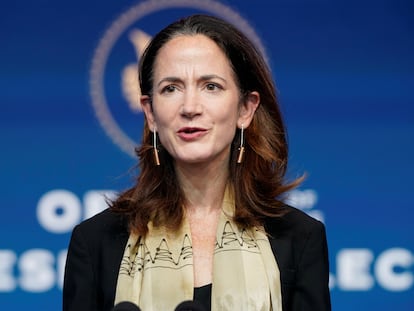
The meeting of heads of intelligence agencies held in Singapore symbolizes the attempt to keep the multilateral framework alive in an increasingly conflict-ridden world

According to Prime Minister Fumio Kishida, the world’s third-largest economy is on the brink of social dysfunction, which has been brought about by a rapidly-aging population. The stories and opinions of members of the younger generations reveal the challenges that lay ahead for a very conservative society

The global tug-of-war is measured in nanometers. Economic and military might increasingly depend on high-end semiconductors, 90% of which are produced in Taiwan. The U.S., China and the EU are making moves to avoid losing the battle
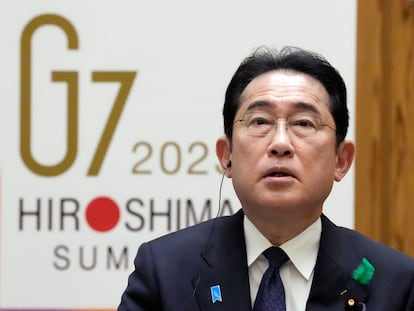
The Japanese prime minister – who hosted this year’s G-7 summit in Hiroshima – came to power as a moderate reformer. But now, after less than two years in power, he’s overseeing significant shifts in his country’s economy, foreign policy and national defense

The Ukrainian president hoped to persuade Indian Prime Minister Narendra Modi and Brazilian President Luiz Inácio Lula da Silva to change their position on the war in Ukraine
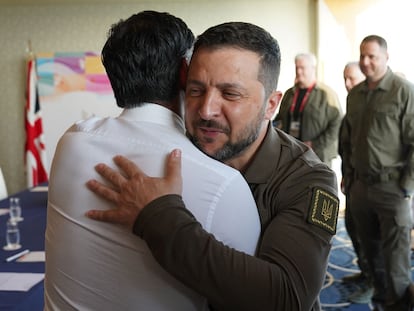
The prospect of delivering F-16 fighter jets to the embattled country – as well as President Zelensky’s activism at the international forum – will influence the future of the conflict
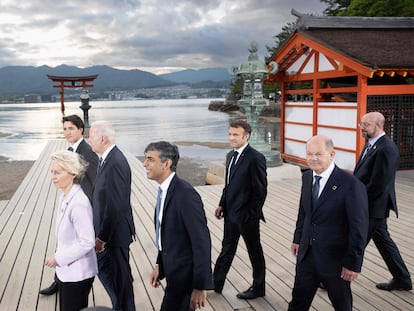
The world’s most industrialized democracies announced a series of cooperation mechanisms to control strategic investment flows to the Asian giant

The director of the Refugee Studies Centre at the British institution warns about the tightening of the migration policies in Europe